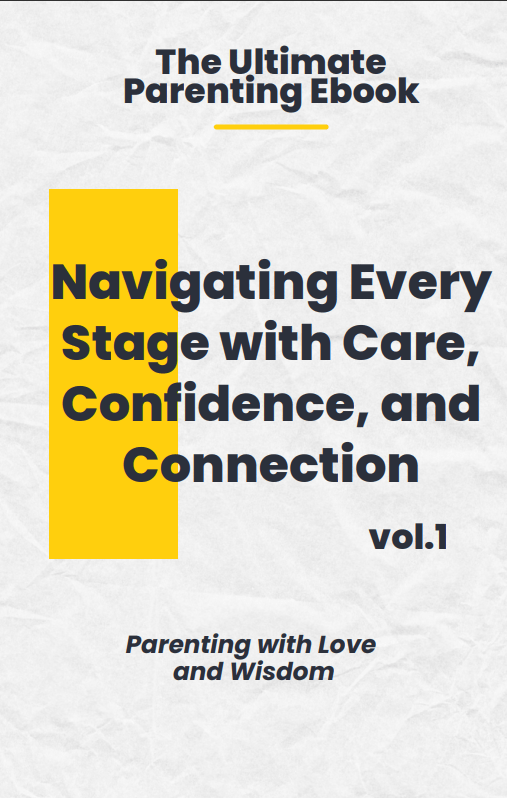
Being a mom to a teenager is tough—sometimes, it feels like you’re walking on eggshells. One day, your teen is chatting away, and the next, you’re met with an eye roll or slammed door. If you’ve found yourself Googling “why teenagers rebel”, you’re not alone.
Rebellion isn’t just about defiance; it’s a complex mix of emotions, expectations, and identity struggles. The good news? With the right approach, you can navigate this tricky phase and strengthen your bond with your teen.
Let’s uncover the hidden reasons why teenagers rebel and explore actionable solutions that truly work.
In This Blog
ToggleWhat Rebellion Really Means
When we hear the word “rebellion,” we often think of teenagers breaking rules, talking back, or pushing limits. But at its core, rebellion is a teenager’s way of seeking independence and figuring out who they are. It’s not always about rejecting you as a mom—it’s about testing boundaries and building their sense of self.
Understanding why teenagers rebel helps you see their behavior through a lens of empathy rather than frustration.
Why Does Rebellion Seem Directed at Moms?
If you’ve ever wondered, “Why does my teenager seem to direct more anger at me than anyone else?”, there’s a reason. Moms often bear the brunt of teenage rebellion because of the emotional closeness they share with their children. Teens feel safer expressing their frustrations with someone they trust won’t abandon them—even if it doesn’t feel that way in the moment.
This closeness can create tension when expectations clash with a teen’s growing desire for independence.
The Surprising Reasons Why Teenagers Rebel
Here are the reasons:
1. Unspoken Expectations
Teens often interpret a mom’s expectations as impossible standards. When you say, “I know you can improve,” they might interpret it as, “You’re not doing well enough.”
Tip: Be mindful of how you frame encouragement. Use phrases like, “I believe in you,” instead of focusing solely on outcomes.
2. Emotional Disconnect
Teenagers crave validation but may feel dismissed if their emotions aren’t taken seriously. Comments like, “You’re overreacting,” can make them feel unheard.
- Tip: When your teen shares their feelings, listen without judgment. A simple, “I understand why you feel that way,” can make a huge difference.
3. Peer Pressure and Social Comparison
Teens compare their lives to their peers. If they feel their rules are stricter than their friends’, it can fuel rebellion.
- Tip: Explain the why behind your rules. For example, instead of just enforcing a curfew, explain, “I want you to get enough rest for school tomorrow.”
4. Hormonal Changes
The adolescent brain is still developing, particularly the prefrontal cortex, which plays a key role in decision-making. Add surging hormones to the mix, and you get impulsive, emotional outbursts.
- Tip: Be patient during these moments. Avoid escalating conflicts by staying calm and giving them space to cool off.
5. Mirror Effect
Teenagers are experts at observing behavior. If they see anger or negativity in you, they might mimic it in their own responses.
- Tip: Model the behavior you want to see. Staying calm during disagreements sets a powerful example.
How Moms Can Address Teenage Rebellion
1. Open Communication is Key
Create a space where your teenager feels secure and comfortable opening up. Schedule one-on-one time to check in without distractions.
- Example: Set aside 15 minutes weekly for a “no-judgment zone” where your teen can share their thoughts openly.
2. Balance Boundaries with Freedom
Teens need structure, but overly rigid rules can backfire. Striking a balance between boundaries and independence fosters mutual respect.
- Example: Instead of banning all social media, agree on specific hours for screen time.
3. Build Empathy Through Connection
Rebellion often stems from a lack of understanding. Build connection by showing genuine interest in their world.
- Example: Ask them about their favorite show or hobby without criticizing their choices.
4. Seek Support When Needed
Sometimes, rebellion is a cry for help. If conflicts feel unmanageable, don’t hesitate to seek guidance from a therapist or counselor.
- Tip: External mentors or family members can also provide a fresh perspective that teens might be more receptive to.
Real Stories: When Rebellion Turned Into Connection
“I thought my daughter hated me,” one mom shared, “but it turned out she felt like I didn’t trust her. Once I started listening instead of lecturing, our relationship transformed.”
Hearing success stories from other moms can remind you that teenage rebellion isn’t the end of the road—it’s just a detour.

Conclusion
Teenage rebellion is a natural, albeit challenging, part of growing up. As a mom, your role isn’t just to set boundaries—it’s to guide, listen, and grow alongside your child.
Remember, why teenagers rebel is rooted in their desire to be understood and respected. By fostering empathy, open communication, and patience, you can turn rebellion into an opportunity for deeper connection.
If you found this guide helpful, share it with another mom who’s navigating the teenage years. Got a story or tip to share? Drop it in the comments—we’d love to hear from you.
You may also be interested in : How to Support Your Teen Mom Daughter: A Parent’s Guide to Support Her Daughter




